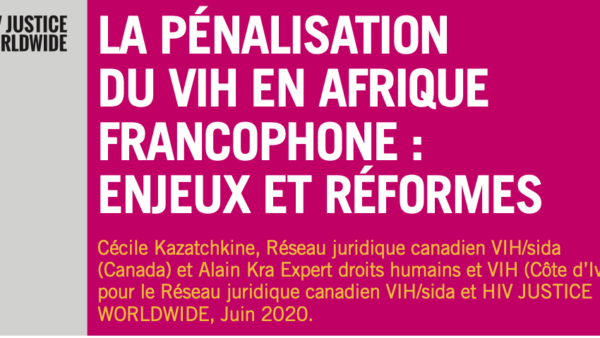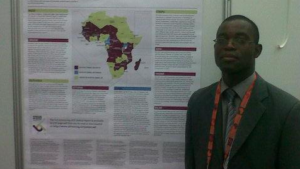Overview
Senegal has an omnibus HIV-specific statute that has both protective and punitive provisions.
Article 36 of the Law on HIV/AIDS makes it an offence for anyone who is knowingly living with HIV and has knowledge of the modes of transmission of HIV, to have unprotected sex with the specific intention to transmit HIV. Transmission is not actually required, meaning that the provision, despite its title, criminalises mere ‘exposure’. As well as requiring knowledge of HIV status, knowledge of the routes of transmission, and an intent to transmit, this provision includes a list of circumstances in which criminal liability is precluded. No one can be prosecuted in cases of transmission or exposure from mother-to-child, acts that do not carry any significant risk of transmission; or when condoms were used. The penalty under this law is five to ten years’ imprisonment and a fine.
The Law on HIV/AIDS also includes punitive penalties for people found guilty of committing discriminatory acts against people living with HIV, disseminating misleading information on HIV, violating confidentiality regulations, and imposing forced HIV testing.
To our knowledge there have been four cases of HIV criminalisation reported in Senegal to date.
In the first case, reported in 2017, a woman who was working as a sex worker was given a suspended sentence of two years’ imprisonment for allegedly having sex while knowingly living with HIV. The report suggests that the facts of the case were contested; while the accuser claims that the sex was unprotected, the woman claimed not to have had sex with the man in question, and in any case, always used condoms and had an undetectable viral load. Although expert medical evidence given at trial highlighted the impossibility of transmission due to her undetectable status, the Court found her guilty under Article 36 of the Law on HIV/AIDS, finding that being undetectable did not preclude liability under the law. This case demonstrates the gap in the implementation and letter of the law, as Article 36 states that acts which don’t pose a significant risk of transmission – which by nature include all sexual acts involving a person living with HIV who has an undetectable viral load – should not result in prosecution.
The second case, reported in 2022, involved a man living with HIV allegedly having sex multiple times with his partner without disclosing his status, for which he was arrested and prosecuted. It is not clear under which provision he was prosecuted.
Two additional cases were reported in 2024, both involving arrests for ‘acts against nature’ (the provision criminalising same-sex activity in Senegal). In the first case, two men were arrested after they were found engaged in consensual sex, one of whom disclosed that he was living with HIV. The second case involved an apparent sexual act between a man living with HIV and a minor. The man was sentenced to five years’ imprisonment for offences including acts against nature and transmission of HIV, while the minor was also tried in juvenile court.
In August 2024 it was reported that advocates were seeking to have the HIV law reformed to better reflect modern science. Civil society, including the National Alliance of Communities for Health, made a request to the National Assembly to organise a training session to highlight the limits of the existing law and the gaps with modern scientific understandings on HIV. On World AIDS Day 2024 (1 December), the deputy director of Human Rights in Senegal called for decriminalisation of HIV except in cases of intentional transmission.
Laws
Law No. 2010-03 of 9 April 2010 on HIV/AIDS
Article 36. Sanctioning perpetrators of deliberate HIV transmission
Any person who, knowing his or her positive HIV status and the modes of transmission of HIV, undertakes unprotected sexual intercourse with the intention of transmitting it to another person shall be punished by imprisonment for five to ten years and a fine of 2,000,000 to 5,000,000 CFA francs.
No one shall be prosecuted or tried under this law for HIV transmission, or for exposure to HIV, when such transmission or exposure occurs in any of the following cases:
– HIV transmission from mother to child before birth, during delivery or during breastfeeding;
– an act that does not pose a significant risk of HIV transmission;
– the person living with HIV who does not know his or her positive HIV status at the time of the act;
– the person living with HIV has practiced safe sex, including condom use.
Acknowledgements
Report presenting the results of a survey on HIV criminalization in African countries where French is spoken, conducted from May to September 2017.
Authors: Stéphanie Claivaz-Loranger & Cécile Kazatchkine for the Canadian HIV Legal Network and HIV JUSTICE WORLDWIDE
HIV Justice Network's Positive Destinations
Visit the Senegal page on Positive Destinations for information on regulations that restrict entry, stay, and residency based on HIV-positive status, as well as access to HIV treatment for non-nationals.







